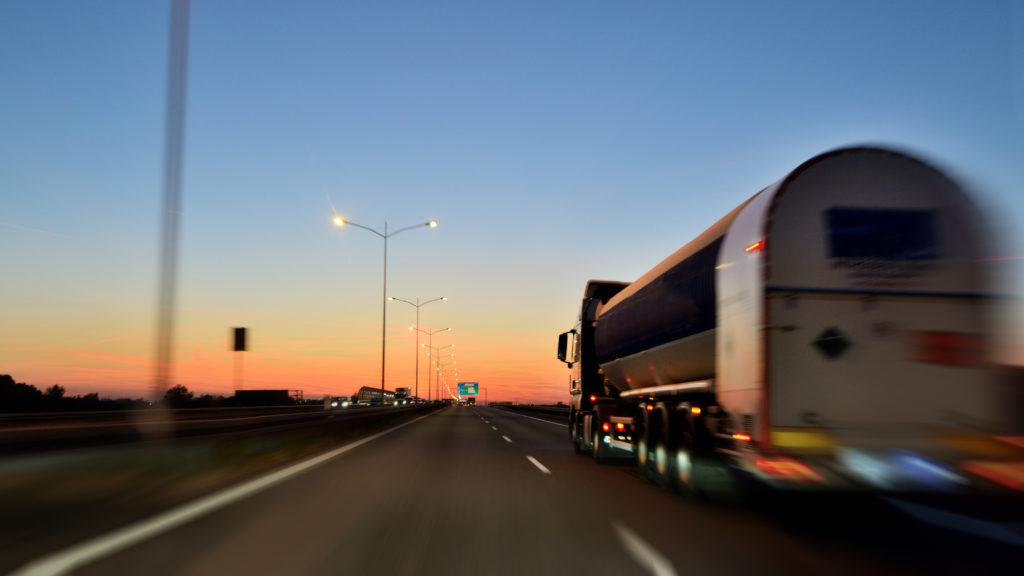
As truck drivers continue working on the country’s front lines during the response to this pandemic, many are regularly–and stressfully–heading straight into areas heavily impacted by the virus.
In order to reduce the risk of contracting COVID-19 while delivering food, household items, and essential supplies, drivers have had to up their sanitation game and find ways to social distance while on the job. Truckers have had to wear personal protective equipment and clean the inside of their cabs regularly, even though hand sanitizer, masks, and gloves have often been hard to come by.
Because of this, fleets have had to find creative (but still effective) ways to stay healthy and germ-free. However, many drivers have expressed their feelings of vulnerability when they haven’t been able to easily find the items they need during this time.
“I feel like I’m running through a fire with gasoline britches on,” said owner-operator Ingrid Brown, who has been delivering food throughout New York and has had trouble getting necessary personal protective gear. “When I get back in my truck, I can’t wipe the steering wheel down. I have no masks, no gloves, no Clorox wipes, nothing.”
Director of operations at Grand Island Express, Deen Albert, said the lack of cleaning supplies his company has had on hand have brought unprecedented challenges. For example, Green Island has had its office staff work together to repurpose extra T-shirts from the company’s storage room in order to make masks, and has sourced cleaning products from a restaurant supplier.
“It is forcing us to think outside of the box,” Albert said.
While fleets are finding loophole methods to keeping drivers as safe as possible, trucker stress levels have reached exceptionally high levels–not just due to obstacles in obtaining PPE and sanitization products, but in regards to mental health, as well.
“At one hospital, I have to park at the dock and then walk into the front of the building to have my temperature checked before they will accept the delivery,” said Averitt Express city driver, Robert Carrillo. “I then have to walk back around the building to the dock to unload the trailer.”
The Chicago driver said making these deliveries to hospitals is nerve-wracking, although he always keeps his cab sanitized and wears a mask.
Truckers have also been extraordinarily isolated, as social distancing regulations have limited in-person contact among shippers, truck stop workers, customers and drivers.
“I don’t get to talk to my customers anymore,” Carrillo explained. “It’s hard. To cope with it, I talk to other drivers. We are our support system.” St. Louis Averitt Express over-the-road driver Sean Linton agreed, saying although isolation was prevalent in the industry pre-pandemic, it has gotten much worse.
“We think twice now before striking up a conversation with a person, which keeps us less social,” Linton said. “I try to stay in contact with my close friends and family more now just to hear a friendly voice on the phone.”
Typically, truck drivers will socialize with other industry workers at restaurants or driver lounges, but “that has been taken away,” said Cargo Transporters driver Rebekah Koon.
Charlotte, North Carolina Averitt over-the-road driver Chris Yohn echoed her sentiments.
“I miss being able to give handshakes to my fellow coworkers. I miss being able to have a meal at a truck stop surrounded by other drivers,” Yohn lamented. “There is no real way to combat the isolation. It’s just something we have to live with for now.”
Albert said Grand Island has brought regular face-to-face interaction to virtual town hall conferences that truckers can call into as a way to increase communication throughout the company.
“I do those once a week at several different times to try to accommodate everybody’s schedule,” said Albert. He also explained that he wants to address any concerns at hand and keep drivers informed on new developments.
This is extremely important, Albert said, because “driver stress is at an all-time high. They have a lot to worry about on the road.”
Additionally, many companies recognize that drivers need to feel comfortable with their routes and the manner of deliveries they have to make.
“If a driver feels unsafe to drive right now, we don’t compel them to work,” said senior vice president at Quality Transport Co., Amanda Schuier.
There are even truckers who often decide to work for longer periods at a time in order to keep loved ones safe and boost their ability to social-distance.
Cargo Transporters’ Koon said that she has immunocompromised family members, so she has decided to stay on the road until the pandemic clears substantially. Luckily, she has a bigger-than-usual cab, which makes life on the road a bit easier.
“When you’re in isolation as a trucker, that 10 feet or 7.5 feet is everything,” she said.
Reader Interactions